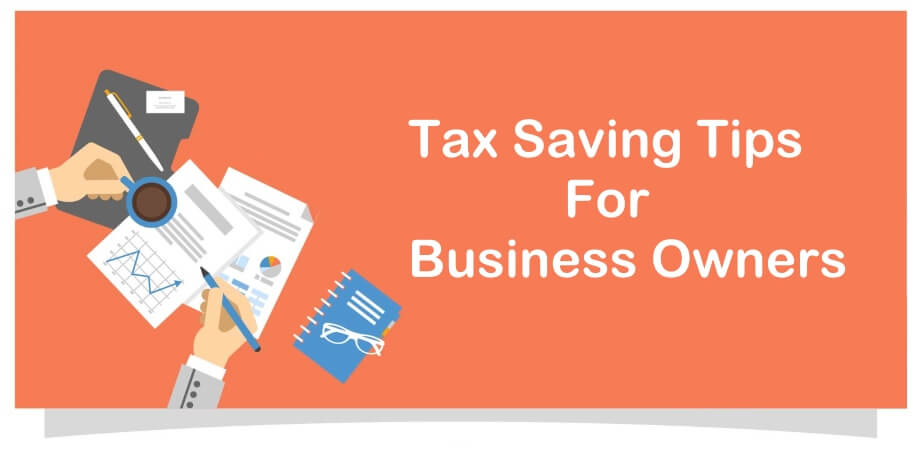Small Business Tax Compliance Made Easy: Top Tips and Best Practices
Small businesses play a vital role in any economy, but navigating the complexities of tax compliance can be a daunting task for entrepreneurs and business owners. However, with the right knowledge and strategies, small business tax compliance can become more manageable and less intimidating. In this guide, we will explore top tips and best practices to help small businesses streamline their tax compliance processes and ensure they are in good standing with tax authorities.

I. Understanding Tax Obligations for Small Businesses
Tax compliance is a fundamental aspect of running a successful small business. However, navigating the complex landscape of tax obligations can be challenging, especially for entrepreneurs and business owners who are not tax experts. To ensure that your small business meets its tax responsibilities and remains in good standing with tax authorities, it’s essential to have a clear understanding of your tax obligations. In this comprehensive guide, we will delve into the crucial topic of understanding tax obligations for small businesses.
1. The Importance of Understanding Tax Obligations
Before we dive into the specifics of tax obligations, let’s emphasize the importance of understanding them. Ignorance of your tax responsibilities can lead to costly penalties, legal troubles, and financial instability for your business. On the contrary, a clear grasp of your tax obligations enables you to plan effectively, maximize deductions, and ensure timely compliance, ultimately contributing to the long-term success of your small business.
2. Types of Tax Obligations for Small Businesses
Small businesses in various industries and locations may have different tax obligations. The following are some common tax types that small businesses often encounter:
-
- Income Tax: This is the tax on the profit earned by your business. Sole proprietors and partners report business income on their personal tax returns, while corporations have separate corporate income tax returns.
-
- Business Income Tax: Some regions impose additional taxes specifically on business income, which may differ from personal income tax rates.
-
- Value-Added Tax (VAT): VAT is a consumption tax levied on the value added at each stage of production or distribution. It is common in many countries and may apply to your business depending on your location.
-
- Sales Tax: Instead of VAT, some regions have a sales tax, which is usually applied at the point of sale to end consumers.
-
- Payroll Tax: If your business has employees, you’ll need to withhold payroll taxes from their wages and contribute a portion as an employer.
-
- Property Tax: If you own business property, such as real estate or equipment, you may be subject to property taxes.
-
- Excise Tax: Excise taxes are levied on specific goods or activities, such as alcohol, tobacco, gasoline, and more. Depending on your industry, you might be subject to excise taxes.
-
- Customs Duties: If your business involves international trade, you may need to pay customs duties on imported or exported goods.
-
- State and Local Taxes: In addition to federal taxes, state and local governments may impose their own taxes, such as state income tax and local sales tax.
It’s crucial to determine which of these taxes apply to your business based on your location, industry, and business structure (e.g., sole proprietorship, partnership, corporation).
3. Research and Compliance
Once you’ve identified the specific tax obligations that apply to your business, the next step is thorough research. Understanding tax laws, regulations, and compliance requirements is essential. Here’s how to approach this:
-
- Tax Authorities: Identify the relevant tax authorities at the federal, state, and local levels. This will typically include the Internal Revenue Service (IRS) at the federal level and state revenue departments at the state level.
-
- Tax Deadlines: Be aware of tax filing deadlines for each tax type. Missing deadlines can result in penalties and interest charges.
-
- Tax Forms: Familiarize yourself with the tax forms required for each type of tax. The IRS and state tax agencies provide a variety of forms, and using the correct forms is crucial.
-
- Tax Deductions and Credits: Explore potential deductions and tax credits that can reduce your tax liability. For example, small businesses can often deduct expenses related to their operations.
-
- Record-Keeping: Establish a robust record-keeping system to track income, expenses, and relevant financial transactions. Accurate records are essential for tax preparation and compliance.
-
- Tax Professionals: Consider consulting with tax professionals, such as certified public accountants (CPAs) or tax attorneys, who specialize in small business taxation. They can provide expert guidance and ensure compliance with tax laws.
4. Reporting and Filing
Once you’ve gathered the necessary information and records, the next step is reporting and filing your taxes. Here’s how to navigate this process:
-
- Tax Preparation: Small business owners can prepare and file their taxes themselves using tax software, or they can hire tax professionals to do it for them.
-
- Forms and Schedules: Depending on your business structure and tax obligations, you may need to complete various forms and schedules. These can include Schedule C for sole proprietors, Form 1120 for corporations, and more.
-
- Extensions: If you cannot meet the tax filing deadline, you may request an extension. However, keep in mind that an extension to file does not extend the deadline for paying taxes owed.
-
- Electronic Filing: E-filing is a convenient and efficient way to submit your tax returns. Many tax preparation software programs offer e-filing options.
-
- Payment Options: Explore payment options if you owe taxes. The IRS and state tax agencies typically accept electronic payments, checks, money orders, and credit card payments.
-
- Keep Copies: Maintain copies of all filed tax returns, payment receipts, and supporting documents. These records should be retained for several years for audit purposes.
5. Seek Professional Guidance
Navigating the intricacies of tax compliance can be overwhelming, especially as your business grows. Seeking professional guidance can be a wise investment. Consider the following:
-
- Hiring a Tax Professional: A certified public accountant (CPA) or tax attorney with expertise in small business taxation can provide invaluable assistance in understanding and meeting your tax obligations.
-
- Tax Planning: Work with a tax professional to develop a tax planning strategy that minimizes your tax liability while ensuring full compliance.
-
- Regular Reviews: Schedule regular tax reviews with your tax advisor to stay current with changing tax laws and regulations.
-
- Tax Software: Utilize tax software designed for small businesses to simplify the tax preparation and filing process.
Understanding your tax obligations is the cornerstone of small business tax compliance. It’s a critical step that sets the foundation for successful tax management. By identifying the applicable taxes, conducting thorough research, maintaining accurate records, reporting and filing on time, and seeking professional guidance when necessary, you can navigate the world of taxes with confidence and ensure the long-term financial health of your small business. Remember that tax compliance is not merely a legal requirement; it’s a strategic aspect of business sustainability and growth.

II. The Significance of Impeccable Record-Keeping for Tax Compliance
Accurate record-keeping is the backbone of tax compliance for any business, and it holds special significance for small businesses. Maintaining comprehensive and organized records of your financial transactions is not just a good practice; it’s a requirement to ensure your business adheres to tax regulations. In this extensive guide, we will explore the crucial role of impeccable record-keeping in tax compliance for small businesses.
1. The Role of Impeccable Record-Keeping
Before we delve into the specifics of record-keeping, let’s understand why it’s so vital:
-
- Legal Requirement: Tax authorities, both at the federal and state levels, require businesses to maintain accurate financial records. Failure to do so can lead to penalties and legal consequences.
-
- Tax Deductions: Properly recorded financial transactions enable you to identify and claim eligible tax deductions and credits. This can significantly reduce your tax liability.
-
- Audit Preparedness: In the event of a tax audit, meticulous records serve as your defense. Auditors will scrutinize your records to verify your financial activities and ensure compliance.
-
- Financial Clarity: Beyond tax purposes, well-organized records provide a clear picture of your business’s financial health. They help with budgeting, forecasting, and making informed business decisions.
2. Types of Records to Maintain
Impeccable record-keeping involves maintaining various types of financial records, including but not limited to:
-
- Income Records: Keep detailed records of all income received by your business. This includes sales, services rendered, interest, dividends, and any other sources of income.
-
- Expense Records: Document all business-related expenses. This includes receipts, invoices, bills, and other documentation related to rent, utilities, supplies, employee wages, marketing costs, and more.
-
- Bank Statements: Regularly review and retain copies of your bank statements to reconcile your records with actual financial transactions.
-
- Receipts and Invoices: Keep all receipts for expenses and invoices for services rendered or products sold. Ensure that they are properly categorized and dated.
-
- Tax Documents: Maintain copies of filed tax returns, as well as any correspondence with tax authorities.
-
- Payroll Records: If you have employees, maintain payroll records, including wage payments, deductions, and employment tax records.
-
- Asset Records: Keep track of asset purchases and sales, including depreciation schedules for tax purposes.
-
- Accounting Ledgers: If you use accounting software or manual ledgers, ensure they are accurate and up-to-date.
-
- Contracts and Agreements: Maintain copies of contracts, agreements, and legal documents that pertain to your business.
3. Organizing Your Records
To maximize the benefits of impeccable record-keeping, consider the following organization tips:
-
- Digital vs. Physical: Decide whether to keep physical copies or opt for digital record-keeping. Digital records are easier to search and organize but require robust cybersecurity measures.
-
- Use Accounting Software: Accounting software such as QuickBooks, Xero, or FreshBooks can simplify record-keeping. These tools automatically categorize transactions and generate financial reports.
-
- File Naming and Labeling: Develop a consistent and logical system for naming and labeling your records. This makes it easier to locate specific documents when needed.
-
- Regular Updates: Dedicate time each week or month to update your records. Consistency is key to maintaining accuracy.
-
- Backup: Implement a secure backup system for digital records. Cloud-based storage solutions can provide redundancy and data security.
-
- Access Control: Limit access to financial records to trusted individuals within your organization. This helps prevent unauthorized changes or data breaches.
4. Record-Keeping for Tax Deductions
Effective record-keeping is essential for identifying and claiming tax deductions that can reduce your overall tax liability. Here are some deductions commonly available to small businesses:
-
- Home Office Deduction: If you operate your business from a home office, maintain records related to your home’s square footage and expenses.
-
- Business Vehicle Deduction: Keep mileage logs, repair receipts, and other documents related to vehicles used for business purposes.
-
- Travel and Entertainment Deductions: Maintain records of business-related travel, including receipts for accommodations, meals, and transportation.
-
- Inventory Records: Accurate records of inventory purchases, sales, and valuations are crucial for businesses that carry inventory.
-
- Depreciation Records: For assets subject to depreciation, maintain depreciation schedules and records of asset purchases and disposals.
-
- Startup Expenses: If you’re a startup, record expenses related to setting up your business, as these can be deducted over time.
5. Seeking Professional Assistance
While maintaining impeccable records is a fundamental responsibility of small business owners, it can be time-consuming and complex. Consider the following when seeking professional assistance:
-
- Accounting Services: Engaging a certified public accountant (CPA) or a professional accountant can help ensure your records are accurate and compliant with tax regulations.
-
- Tax Software: Explore tax software designed for small businesses. These tools often come with record-keeping features and can simplify the tax preparation process.
-
- Regular Reviews: Schedule regular reviews of your financial records with your accountant to identify opportunities for deductions and ensure compliance.
Impeccable record-keeping is an essential element of tax compliance for small businesses. It goes beyond fulfilling legal requirements; it’s a strategic practice that can result in reduced tax liability, efficient financial management, and readiness for audits. By maintaining accurate records of income, expenses, receipts, and invoices, and by following organization best practices, you can enhance your business’s financial transparency and ensure that you’re well-prepared for tax reporting and compliance. Remember that record-keeping is not just an administrative task; it’s a critical aspect of your business’s financial success.

III. Maximizing Tax Deductions for Small Businesses: Strategies and Best Practices
One of the most effective ways for small businesses to reduce their tax liability is by leveraging tax deductions. Tax deductions allow businesses to subtract certain expenses from their total income, resulting in a lower taxable income and, consequently, reduced tax liability. In this comprehensive guide, we will delve into the world of tax deductions for small businesses, exploring the various deductions available, strategies to maximize their benefits, and best practices for careful documentation.
1. The Significance of Tax Deductions
Before we explore the specifics of tax deductions, it’s important to understand why they are crucial for small businesses:
-
- Lower Tax Liability: Tax deductions directly reduce your taxable income, which, in turn, lowers the amount of taxes you owe. For small businesses, this can translate into substantial savings.
-
- Boost Cash Flow: By reducing your tax liability, you free up more cash for your business to reinvest, expand, or cover essential operational costs.
-
- Encourage Investment: Some deductions are designed to incentivize specific business activities, such as research and development or hiring certain types of employees.
-
- Competitive Advantage: Leveraging deductions can give your small business a competitive edge by allowing you to offer more attractive pricing or invest in growth opportunities.
2. Types of Tax Deductions for Small Businesses
Tax deductions for small businesses can vary widely depending on your industry, structure, and financial activities. Here are some common deductions to consider:
-
- Business Expenses: This category includes deductions for ordinary and necessary expenses incurred while running your business. It covers a wide range of expenses, such as rent, utilities, office supplies, advertising, and professional fees.
-
- Home Office Deduction: If you use part of your home exclusively for business purposes, you may qualify for a home office deduction. This can include deductions for a portion of your rent or mortgage, utilities, and maintenance costs.
-
- Vehicle Expenses: Small businesses that use vehicles for business purposes can deduct expenses related to those vehicles. This can include mileage, fuel, maintenance, and depreciation.
-
- Startup Costs: Newly established businesses can deduct certain startup expenses, such as legal fees, market research, and advertising costs, up to a certain limit.
-
- Depreciation: Businesses can deduct the cost of purchasing or improving assets over time through depreciation. This includes equipment, machinery, and property.
-
- Health Insurance Premiums: If you provide health insurance for your employees, you may be eligible for deductions related to those premiums.
-
- Retirement Contributions: Contributions to retirement plans for both you and your employees can often be deducted from your taxable income.
-
- Charitable Contributions: Donations made by your business to qualified charitable organizations may be deductible.
3. Strategies for Maximizing Deductions
Now that we’ve covered some common deductions, let’s explore strategies for maximizing their benefits:
-
- Keep Impeccable Records: Accurate and organized record-keeping is essential for claiming deductions. Maintain detailed records of all expenses, including receipts, invoices, and transaction history.
-
- Consult a Tax Professional: Consider working with a certified public accountant (CPA) or tax professional who specializes in small business taxation. They can help identify eligible deductions and ensure compliance.
-
- Plan Purchases and Expenses: Strategically time significant purchases and expenses to maximize deductions. For example, if you plan to buy new equipment, consider doing so in a tax year where you have higher taxable income.
-
- Stay Informed: Tax laws and regulations change, so it’s crucial to stay informed about the latest updates and changes that may impact your deductions.
-
- Take Advantage of Credits: In addition to deductions, explore available tax credits. Credits directly reduce your tax liability, providing even more significant savings.
-
- Seek Professional Advice: When making major financial decisions, especially those involving taxes and deductions, consult with a tax professional to ensure you’re making the most informed choices.
4. The Importance of Careful Documentation
Proper documentation is the key to successfully claiming deductions without encountering issues during an audit. Here are some best practices for maintaining meticulous records:
-
- Receipts and Invoices: Keep all receipts and invoices related to deductible expenses. Ensure they are dated, clear, and accurately reflect the expense.
-
- Digital Records: Consider using accounting software or digital platforms to store and organize your financial records. These tools often have built-in features for tracking expenses.
-
- Expense Categories: Create clear and specific categories for expenses to ensure accurate accounting. This simplifies the process of identifying deductible expenses.
-
- Bank and Credit Card Statements: Regularly review and reconcile your bank and credit card statements with your financial records. This helps catch any discrepancies early.
-
- Record Keeping Period: Be aware of how long you need to retain financial records. While tax returns themselves should be kept for at least three years, some supporting documents may need to be retained longer.
Leveraging tax deductions is a valuable strategy for small businesses to reduce their tax liability and improve their financial health. By understanding the significance of deductions, identifying the types of deductions available, implementing smart strategies, and maintaining impeccable records, small business owners can ensure they are taking full advantage of every opportunity to minimize their tax obligations legally and responsibly. Remember that tax laws can be complex, so consulting with a tax professional is often a wise investment to navigate the world of deductions effectively.

IV. Navigating Tax Deductions for Small Businesses: The Importance of Staying Informed
In the ever-evolving landscape of tax regulations and deductions, staying informed is not just a good practice; it’s an absolute necessity for small business owners. Regulatory changes can significantly impact your eligibility for deductions, the amount you can claim, and the overall tax landscape. In this comprehensive guide, we’ll delve into the critical importance of staying informed about regulatory changes and how it can affect your small business tax strategy.
1. The Dynamic Nature of Tax Regulations
Tax regulations are constantly changing. These changes can be influenced by various factors, including shifts in government policy, economic conditions, and emerging business trends. For small business owners, staying on top of these changes is crucial for several reasons:
-
- Maintaining Compliance: Failure to comply with updated tax regulations can lead to penalties, fines, and even legal consequences. Staying informed helps you avoid unintentional non-compliance.
-
- Optimizing Deductions: New tax laws may introduce or modify deductions that can benefit your business. Being aware of these changes allows you to maximize your deductions, reducing your tax liability.
-
- Strategic Planning: Being proactive in understanding regulatory changes allows you to incorporate tax strategies into your overall business planning. You can make informed decisions that align with your financial goals.
-
- Budgeting and Forecasting: Accurate knowledge of tax regulations helps you budget more effectively. You can anticipate changes in your tax liability and allocate resources accordingly.
2. Sources of Regulatory Changes
Regulatory changes can originate from various sources, making it essential to cast a wide net when seeking information. Here are some common sources to monitor:
-
- Government Websites: Government agencies responsible for tax regulations, such as the Internal Revenue Service (IRS) in the United States, maintain official websites where they publish updates, guidelines, and changes in tax laws.
-
- Tax Professionals: Certified public accountants (CPAs) and tax professionals often have access to the latest information and can provide guidance on regulatory changes that affect your specific business.
-
- Industry Associations: Depending on your industry, joining relevant associations can be beneficial. These organizations often disseminate information about regulatory changes that impact their members.
-
- Tax News and Publications: Specialized tax news outlets and publications regularly report on changes to tax laws. Subscribing to these sources can help you stay informed.
-
- Seminars and Workshops: Consider attending tax seminars and workshops hosted by reputable organizations. These events often cover the latest regulatory changes and their implications.
3. How Regulatory Changes Impact Deductions
Understanding how regulatory changes can impact your deductions is vital for effective tax planning. Here are some ways these changes can affect your small business deductions:
-
- Eligibility: Regulatory changes may alter the eligibility criteria for specific deductions. For instance, a new law might expand the scope of a deduction to include businesses in a previously excluded industry.
-
- Deduction Limits: Changes can impose or lift limits on deductions. A deduction that was previously uncapped may now have a maximum limit, affecting the amount you can claim.
-
- Phase-Outs: Some deductions are subject to phase-outs based on income levels. Regulatory changes can modify these thresholds, affecting the deductions you qualify for.
-
- Qualifying Expenses: Updates can redefine what expenses qualify for deductions. Understanding these changes is essential to ensure that you accurately categorize and claim deductible expenses.
-
- Expiration Dates: Certain deductions may have expiration dates or sunset provisions. Regulatory changes can extend or eliminate these deadlines, impacting the longevity of deductions.
4. The Role of Tax Professionals
Tax professionals, including CPAs and tax consultants, play a crucial role in helping small business owners navigate regulatory changes. Here’s how they can assist:
-
- Interpretation: Tax professionals are well-versed in tax law and can interpret regulatory changes in a way that’s relevant to your business.
-
- Strategic Planning: They can assist in developing tax strategies that consider new deductions and regulatory adjustments, ensuring you benefit from available opportunities.
-
- Compliance: Tax professionals help you remain compliant with the latest tax laws, reducing the risk of errors or oversights.
-
- Filing Assistance: When it’s time to file your tax returns, tax professionals can ensure you’re taking full advantage of deductions and meeting all reporting requirements.
-
- Audit Support: In the event of an audit, tax professionals can provide valuable support by demonstrating compliance with current tax regulations.
5. Incorporating Regulatory Changes into Your Tax Strategy
To effectively incorporate regulatory changes into your tax strategy, consider the following steps:
-
- Regular Updates: Make staying informed about regulatory changes a routine part of your financial management. Dedicate time to reviewing tax news and updates periodically.
-
- Consultation: Consult with a tax professional to assess how regulatory changes affect your business specifically. They can provide personalized advice and strategies.
-
- Adjust Record-Keeping: Modify your record-keeping practices to align with new requirements or deductions. Ensure that you accurately track expenses and maintain proper documentation.
-
- Scenario Planning: Scenario planning involves considering various tax scenarios based on different regulatory outcomes. It helps you prepare for potential changes proactively.
-
- Compliance Training: If you have employees involved in financial matters, provide them with training on relevant tax regulations to ensure compliance.
In the complex world of small business taxes, understanding the significance of staying informed about regulatory changes cannot be overstated. These changes can significantly impact your tax obligations, deductions, and overall financial health. By proactively seeking information, leveraging the expertise of tax professionals, and adapting your tax strategy accordingly, you can navigate the evolving tax landscape with confidence, ensuring your business remains compliant and financially optimized.

V. The Value of Professional Assistance in Small Business Tax Compliance
Navigating the intricacies of tax compliance can be a daunting task for small business owners. With a multitude of tax regulations, deductions, and reporting requirements, ensuring that your business meets its tax obligations can become overwhelming. In this comprehensive guide, we will delve into the critical role of seeking professional assistance in small business tax compliance and explore the multitude of benefits it can provide.
1. The Complexity of Tax Compliance
Tax compliance is not a one-size-fits-all endeavor. It varies significantly based on factors such as the type of business, industry, location, and size. Small business owners often find themselves grappling with the complexity of tax regulations, which may include income tax, corporate tax, payroll tax, sales tax, and more. Here’s why tax compliance can be challenging:
-
- Ever-Changing Regulations: Tax laws are subject to frequent changes and updates at the federal, state, and local levels. Keeping up with these changes can be a full-time job.
-
- Diverse Deductions: Identifying and optimizing available deductions can be challenging. Different businesses may be eligible for various deductions, and knowing which ones apply can be complex.
-
- Reporting Requirements: Accurate and timely reporting to tax authorities is essential. Failure to do so can result in fines, penalties, and even legal consequences.
-
- Record-Keeping: Maintaining meticulous financial records is crucial for tax compliance. This includes keeping track of income, expenses, receipts, and invoices.
2. The Benefits of Professional Assistance
Recognizing the complexities and challenges of tax compliance, many small business owners turn to professional assistance, which can come in the form of individual accountants or accounting firms. Here are the key benefits of seeking professional help:
-
- Expertise: Qualified accountants possess in-depth knowledge of tax laws, regulations, and deductions. They are well-versed in the intricacies of the tax code and can provide expert guidance.
-
- Customized Tax Strategies: Professionals can develop tax strategies tailored to your business. These strategies aim to optimize deductions, reduce tax liability, and improve financial efficiency.
-
- Accurate Filings: Ensuring accurate and error-free tax filings is paramount. Professionals have the experience and attention to detail needed to prepare and file tax returns correctly.
-
- Timely Compliance: Meeting tax deadlines is crucial. Professionals can help you stay on top of filing dates and payment requirements, reducing the risk of penalties.
-
- Audit Support: In the event of a tax audit, having a professional by your side can be invaluable. They can provide documentation, explanations, and representation during the audit process.
3. Choosing the Right Tax Professional
Selecting the right tax professional or accounting firm is a critical decision for small business owners. Here are steps to guide you through the process:
-
- Assess Your Needs: Determine the specific tax services you require. This could range from general tax preparation to more specialized services like international tax compliance.
-
- Credentials: Look for qualified professionals with the appropriate certifications. Certified Public Accountants (CPAs) and Enrolled Agents (EAs) are often good choices.
-
- Experience: Inquire about the professional’s experience, especially with businesses of a similar size and in your industry. Experience can be a valuable asset.
-
- Reputation: Research the professional’s or firm’s reputation. Read reviews, ask for referrals, and check with professional organizations or regulatory bodies.
-
- Communication: Effective communication is key. Ensure that you can easily communicate with your tax professional and that they are responsive to your inquiries.
4. The Cost of Professional Assistance
While professional assistance comes at a cost, it’s essential to consider the potential return on investment. The benefits of accurate tax filings, reduced liability, and peace of mind can outweigh the fees incurred. Here’s how to approach the cost of professional assistance:
-
- Budget Allocation: Allocate a portion of your budget for professional tax services. This allocation can vary based on your business size, complexity, and financial capacity.
-
- Compare Fees: Request fee quotes from multiple professionals or firms. Compare their services, reputation, and pricing to make an informed decision.
-
- Long-Term Value: Consider the long-term value of professional assistance. The savings achieved through optimized tax strategies can far exceed the cost of services.
-
- Risk Mitigation: Professional assistance can help mitigate the risk of errors, audits, and non-compliance, which can be costly in the long run.
-
- Consultation: Many tax professionals offer initial consultations at no charge. Use this opportunity to discuss your needs, ask questions, and assess the value they can provide.
5. The Bottom Line: Is Professional Assistance Worth It?
In the world of small business tax compliance, the question of whether professional assistance is worth it is often answered with a resounding “yes.” The benefits of expertise, customized tax strategies, accurate filings, and peace of mind cannot be overstated. Professional assistance ensures that your business meets its tax obligations while optimizing deductions and reducing liability.
Moreover, the cost of professional services can be considered an investment in your business’s financial health. By avoiding costly mistakes, penalties, and audits, you are safeguarding your business’s stability and future growth. Ultimately, professional assistance offers the assurance that your small business is on solid ground when it comes to tax compliance, allowing you to focus on what you do best – running and growing your business.

Conclusion
Small business tax compliance doesn’t have to be a daunting or overwhelming task. By understanding your tax obligations, maintaining impeccable records, leveraging deductions, staying informed about regulatory changes, and seeking professional assistance when needed, you can simplify the process and ensure that your business remains in good standing with tax authorities. Remember that compliance is not just a legal requirement but also a crucial aspect of financial stability and long-term business success.
Source: Admin compiled from the Internet
